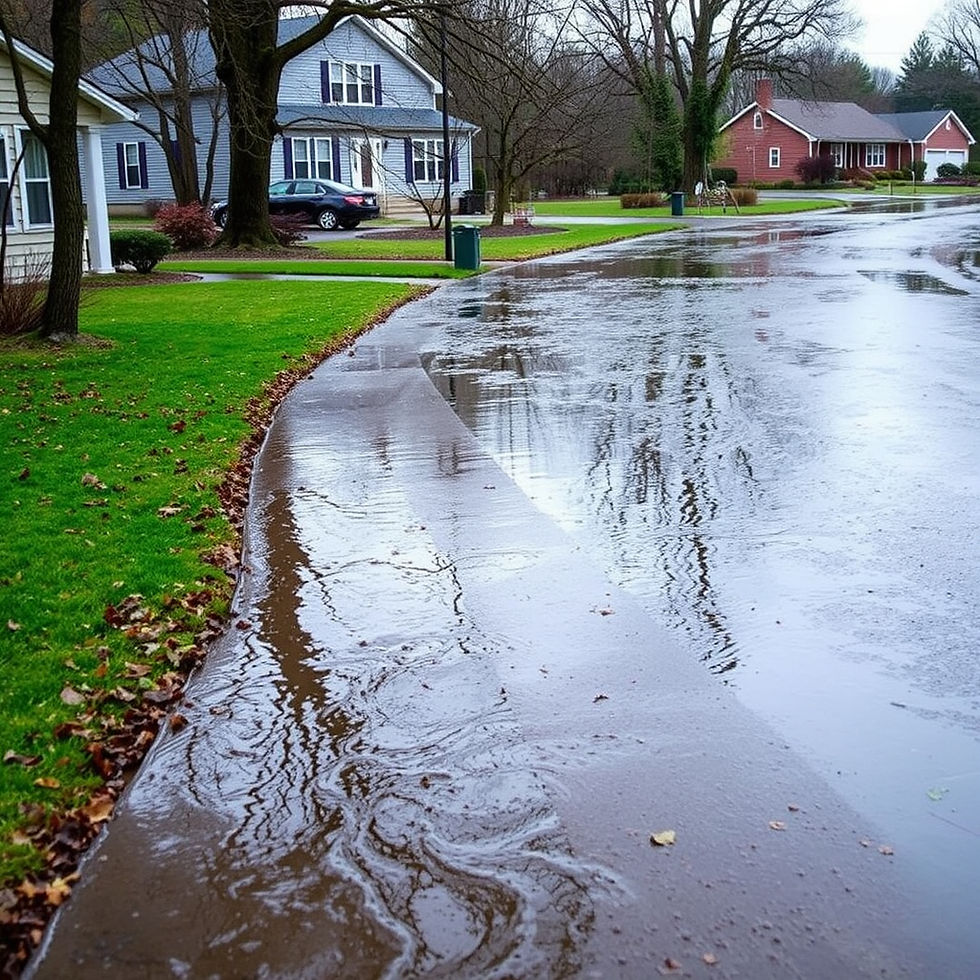How Long Does It Take to Replace an AC Unit? A Complete Homeowner's Guide
- Jayant Upadhyay
- Jul 23
- 4 min read

Table of Contents
Introduction
Replacing an air conditioning (AC) unit is a significant investment that impacts your home’s comfort, energy efficiency, and indoor air quality. One of the first questions homeowners ask is, “How long does it take to replace an AC unit?”
The answer isn’t one-size-fits-all. While a straightforward residential replacement can take as little as 4 to 8 hours, more complex installations or full system upgrades may span 1 to 3 days.
In this guide, we break down all the variables that determine the time frame and help you plan your AC replacement without surprises.
Typical AC Replacement Timeline
Here’s a quick look at general timelines:
Type of Replacement | Estimated Time |
Like-for-like AC unit swap | 4–8 hours |
AC unit + indoor coil | 1 full day |
AC + Furnace + Ductwork | 2–3 days |
Mini-split systems | 1 day per zone |
Commercial rooftop units | 1–5 days |
These are general estimates. The exact time depends on the system type, home layout, and installation complexity.
Factors That Influence Installation Time
1. Type of AC System
Central AC systems with pre-existing ductwork are faster to replace.
Ductless mini-splits require wall units and wiring setup.
Heat pumps or hybrid systems may require adjustments to both heating and cooling lines.
2. Unit Size and Tonnage
Larger AC units often require:
Stronger support pads
Larger line sets
Bigger electrical capacityThis adds time to the replacement process.
3. Existing Infrastructure
If:
Your ductwork is intact
Electrical connections are compliant
And refrigerant lines are functionalThen installation is quicker.
Otherwise, expect delays for retrofits or upgrades.
4. Accessibility
Units installed on rooftops, attics, or tight crawl spaces need more labor and safety precautions, increasing replacement time.
5. Permits and Inspections
Local building codes often require:
Permits before work
Inspections after installationThis can add 1–2 days, depending on city response times.
Step-by-Step AC Unit Replacement Process
Here’s a breakdown of what HVAC technicians typically do during a replacement:
1. System Shutdown and Refrigerant Recovery (1–2 hours)
Turn off power
Safely extract refrigerant using recovery machines (EPA required)
2. Remove the Old AC Unit (1–2 hours)
Disconnect electrical wiring and refrigerant lines
Remove old condenser and air handler/furnace
3. Site Preparation (0.5–1 hour)
Check/replace the base pad for the outdoor unit
Modify ductwork or wall cutouts if needed
4. Install the New AC Unit (2–4 hours)
Position outdoor and indoor components
Connect refrigerant lines, wiring, and drain lines
5. System Charging and Testing (1–2 hours)
Charge with refrigerant
Test pressure, airflow, and thermostat controls
Inspect for leaks and calibrate
6. Final Cleanup and Walkthrough (0.5–1 hour)
Remove old equipment
Explain the new system operation to the homeowner
Total Time: 6 to 10 hours (in most basic installations)
Residential vs Commercial AC Replacement Times
Aspect | Residential | Commercial |
Complexity | Moderate | High |
Permit Involvement | 1–2 inspections | Multiple stages |
Installation Time | 1 day | 2–5 days |
Crew Size | 2–3 technicians | 5+ technicians |
Downtime Concern | Medium (home comfort) | High (business operations) |
When to Replace Your AC Instead of Repairing It
Time-to-replace indicators:
Unit age: 10–15+ years
Frequent breakdowns
High energy bills
Inconsistent cooling
R-22 refrigerant (banned)
Replacing vs Repairing:
Repair Cost | Unit Age | Recommendation |
<$300 | <5 years | Repair |
$500–$1,500 | 10+ years | Replace |
>$2,000 | Any age | Replace |
Common Delays and How to Avoid Them
1. Permit Delays
Apply early and ask your contractor to expedite.
2. Part or Equipment Shortages
Avoid peak seasons (June–August). Spring and fall have more availability.
3. Unforeseen Repairs
Old wiring, leaky ducts, or damaged pads may slow down work.Tip: Get a pre-inspection or second opinion.
4. Weather Conditions
Outdoor work halts during rain or storms. Schedule during a clear forecast.
Hiring the Right HVAC Contractor
Look for:
NATE-certified technicians
Licensing and insurance
Warranty offers (10-year parts/1-year labor standard)
Positive reviews and local references
Clear, itemized quotes
Tip: Avoid “too-good-to-be-true” offers. Low prices often skip proper installation steps.
How to Prepare Your Home for AC Replacement
Clear access to attic or utility room
Move pets and kids away
Unlock gates and doors
Clear 3–5 feet of space around the outdoor unit
Cover furniture near indoor work area
FAQs
Q1. Can an AC unit be replaced in one day?
Yes—if it’s a basic replacement with existing infrastructure, it usually takes 4–8 hours.
Q2. Will I be without cooling during replacement?
Yes, you’ll lose cooling for the day. Try to schedule when the weather is milder.
Q3. Do I need to be home during the installation?
It’s best to be home during installation for access and final walkthrough.
Q4. Can I replace just the outdoor unit?
Not recommended. Old indoor components may be incompatible and void warranties.
Q5. How long does an AC system last?
On average, 10–15 years with proper maintenance.
Conclusion
Replacing an AC unit is a major but manageable upgrade. In many cases, you can expect the job to be completed within a single day. However, factors like ductwork, unit type, and system access can extend the timeline.
The key to a smooth replacement is proper planning, choosing the right contractor, and understanding the scope of work beforehand.
If your current AC is inefficient, noisy, or unreliable—don’t wait for a breakdown during peak summer. Plan your replacement in advance and ensure a cool, comfortable home year-round.



Comments